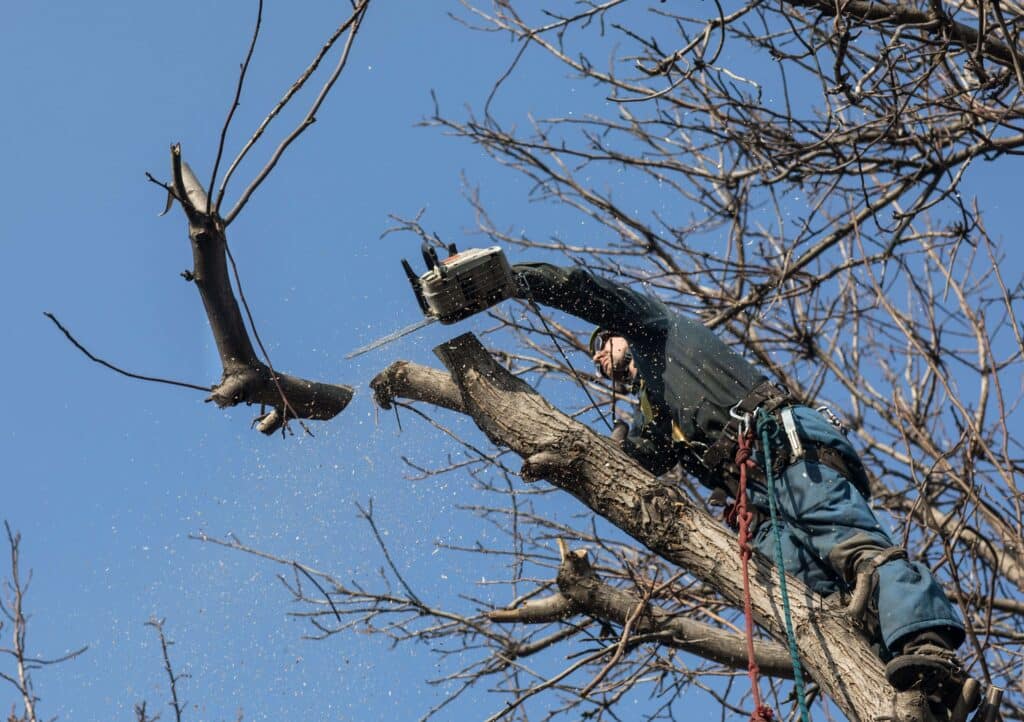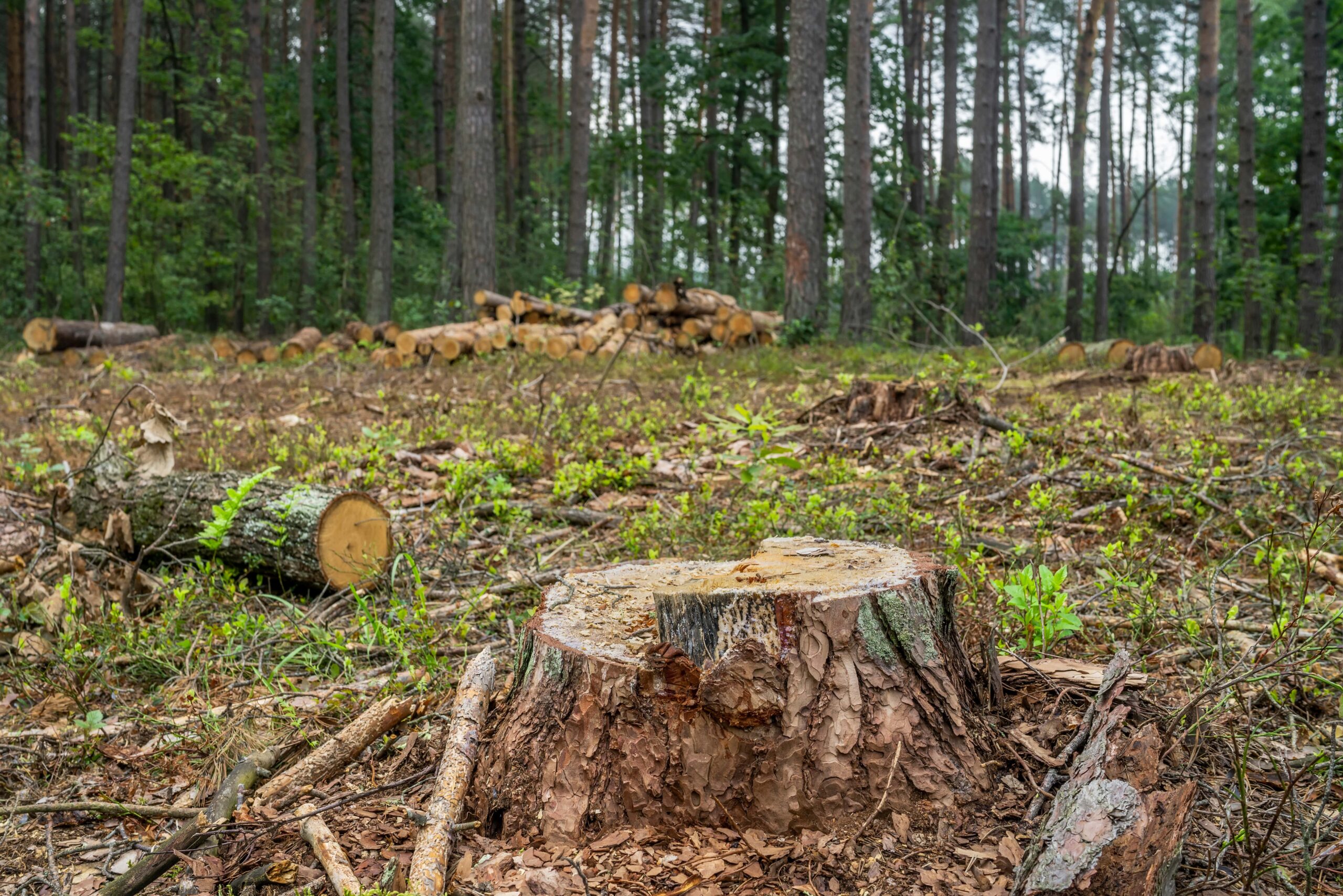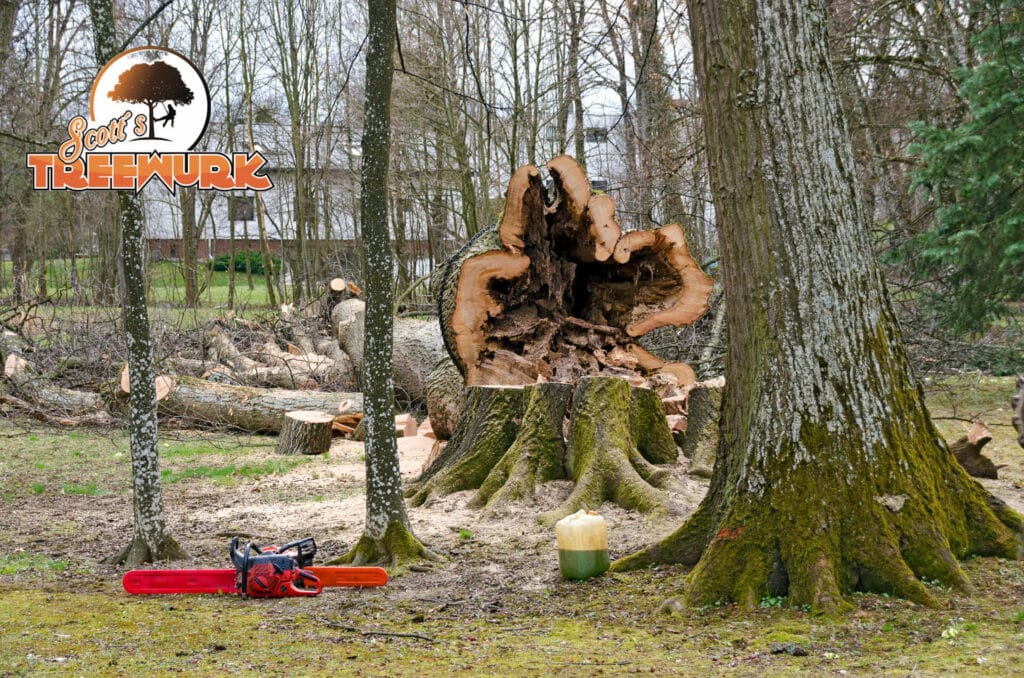
When contemplating the removal of a tree from your property, a common question that arises is, “Do you need a permit to cut down a tree in Georgia?” The answer is not always straightforward, as it depends on several factors, including the location of your property, the type of tree, and the specific regulations of your local municipality. This blog article aims to provide a comprehensive overview of the process and requirements for obtaining a permit to cut down a tree in Georgia, ensuring property owners are well-informed and compliant with state and local laws. Whether you’re dealing with potentially hazardous trees, managing your landscape, or simply curious about the regulations, we’ll cover the essential information you need to know before making any decisions.
Why Tree Permits Are Necessary
Trees play a vital role in Georgia’s ecosystem, offering benefits such as air purification, shade, and beautification of the surroundings. However, there are circumstances where removing a tree becomes necessary, such as when it poses a safety risk, is diseased, or interferes with construction plans.
Tree permits play a critical role in managing the urban canopy, preserving the environment, and maintaining public safety. They ensure that tree removal is considered carefully, taking into account the impact on local ecosystems, the character of neighborhoods, and the overall well-being of communities.
Local Ordinances Take Precedence
The requirement for a permit to cut down a tree varies by city and county. While some areas may have more lenient rules, others enforce strict regulations to protect tree canopies and promote urban forestry initiatives. For example, the City of Atlanta has stricter tree protection ordinances compared to rural areas that require permits for the removal of certain sizes or species of trees, even on private property.
Understanding Specimen Trees
Most urban and suburban areas in Georgia have specific ordinances that require homeowners to obtain a permit before removing trees, especially those considered “specimen trees” or trees of a certain diameter, historic value, or species.
Specimen trees are often defined by their size, age, species, and ecological importance. Cities like Atlanta and Savannah have detailed criteria for what constitutes a specimen tree. Generally, a tree with a diameter at breast height (DBH) of a certain measurement (for example, 30 inches or more) may require a permit for removal. The purpose behind these regulations is to preserve mature trees that contribute significantly to the community’s green space and environmental health.
Exemptions and Special Considerations
There are exemptions to tree removal permits in many areas of Georgia. For example, trees that are dead, dying, or pose an imminent hazard may be removed without a permit. However, documentation or an arborist’s report might be required to prove the tree’s condition. Additionally, properties under certain sizes or in specific zoning categories may have different rules.
Steps to Determine If You Need a Permit
- Identify the Tree and Its Location: Begin by identifying the tree species, size (diameter at breast height), and its location on your property. Some regulations focus on protecting native or historic trees, while others may have size thresholds.
- Check Local Regulations: Contact your local city or county government’s planning, zoning, or natural resources department to inquire about tree removal permits. They can provide specific ordinances and guidelines relevant to your area.
- Understand the Application Process: If a permit is required, you will need to understand the application process, which may involve submitting a tree removal plan, paying a fee, and possibly providing an arborist’s report or a replanting plan.
Applying for a Tree Removal Permit
The application process for a tree removal permit in Georgia can vary, but generally, it involves the following steps:
- Submission of Application: Fill out the necessary forms provided by your local government. This may include details about the tree, reasons for its removal, and any replanting plans.
- Payment of Fees: There may be a fee associated with the permit application. These fees can vary depending on the municipality and the specifics of the project.
- Arborist Report: Some jurisdictions may require an assessment from a certified arborist to confirm the tree’s condition and the necessity for removal.
- Public Notice and Comment: In some cases, the application process may involve a public notice period, allowing neighbors or community members to comment on the proposed tree removal.
- Approval and Permit Issuance: Once all requirements are met and any public comment periods have ended, the permit can be approved and issued, allowing you to proceed with the tree removal.

Factors Influencing Permit Approval
Several factors can influence the approval of a tree removal permit, including:
- Tree Health and Safety: Trees that are diseased, dead, or pose a safety hazard are more likely to be approved for removal.
- Impact on the Environment: The potential impact of the tree removal on local wildlife, soil stability, and the overall ecosystem is carefully considered.
- Heritage or Protected Trees: Special considerations are made for trees that are considered historic, rare, or of significant ecological value.
Consequences of Non-Compliance
Failing to obtain a necessary permit before cutting down a tree can lead to various penalties, including fines, replanting requirements, or other legal actions. It’s essential to adhere to local regulations to avoid such consequences and support the sustainable management of Georgia’s natural resources.
Need to Cut a Tree Down? Contact Treewurk Today
Whether you need a permit to cut down a tree in Georgia largely depends on where you live and the specific characteristics of the tree in question. Before taking any action, it is essential to consult with your local city or county government to understand the relevant ordinances and permit requirements. By doing so, you ensure that your tree removal project is in compliance with local laws and contributes to the sustainable management of Georgia’s treasured tree canopy.
Treewurk stands at the forefront of delivering unparalleled tree services across the Metro Atlanta Georgia areas, epitomizing professionalism and expertise in every task we undertake. From meticulous tree removals to comprehensive care and maintenance, our team is equipped with the knowledge and tools to ensure the health and safety of your trees and property.
If you reside in or around Metro Atlanta Georgia and are in search of top-tier tree removal services, we invite you to reach out to Treewurk. Contact us today for a free quote and discover more about how we can assist you in maintaining the beauty and safety of your outdoor space.

